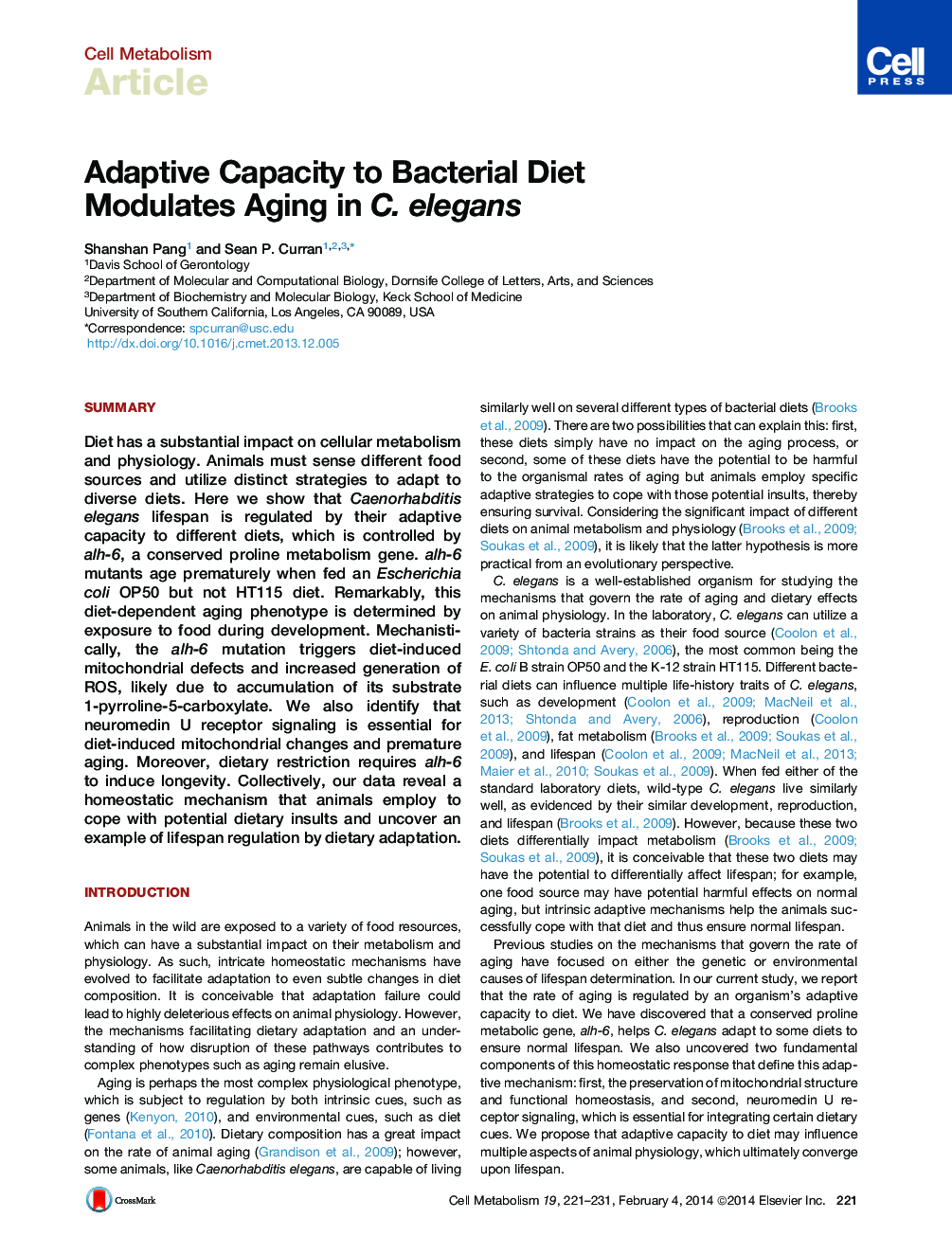| کد مقاله | کد نشریه | سال انتشار | مقاله انگلیسی | نسخه تمام متن |
|---|---|---|---|---|
| 2792684 | 1155077 | 2014 | 11 صفحه PDF | دانلود رایگان |

• A conserved proline metabolic gene, alh-6, delays aging in a diet type-dependent manner
• The alh-6 mutation leads to mitochondrial dysfunction induced by particular diets
• NMUR-1 signaling is essential for diet-induced premature aging in alh-6 mutants
• Dietary restriction-induced longevity requires alh-6
SummaryDiet has a substantial impact on cellular metabolism and physiology. Animals must sense different food sources and utilize distinct strategies to adapt to diverse diets. Here we show that Caenorhabditis elegans lifespan is regulated by their adaptive capacity to different diets, which is controlled by alh-6, a conserved proline metabolism gene. alh-6 mutants age prematurely when fed an Escherichia coli OP50 but not HT115 diet. Remarkably, this diet-dependent aging phenotype is determined by exposure to food during development. Mechanistically, the alh-6 mutation triggers diet-induced mitochondrial defects and increased generation of ROS, likely due to accumulation of its substrate 1-pyrroline-5-carboxylate. We also identify that neuromedin U receptor signaling is essential for diet-induced mitochondrial changes and premature aging. Moreover, dietary restriction requires alh-6 to induce longevity. Collectively, our data reveal a homeostatic mechanism that animals employ to cope with potential dietary insults and uncover an example of lifespan regulation by dietary adaptation.
Graphical AbstractFigure optionsDownload high-quality image (245 K)Download as PowerPoint slide
Journal: - Volume 19, Issue 2, 4 February 2014, Pages 221–231